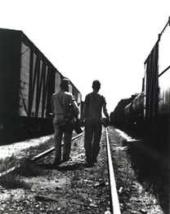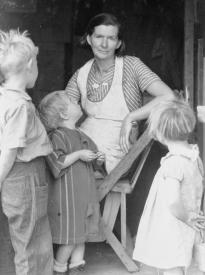 The Great Depression of 1929-33 was the most severe economic crisis of modern times. Millions of people lost their jobs, and many farmers and businesses were bankrupted. Industrialized nations and those supplying primary products (food and raw materials) were all affected in one way or another. In Germany the United States industrial output fell by about 50 per cent, and between 25 and 33 per cent of the industrial labour force was unemployed.
The Great Depression of 1929-33 was the most severe economic crisis of modern times. Millions of people lost their jobs, and many farmers and businesses were bankrupted. Industrialized nations and those supplying primary products (food and raw materials) were all affected in one way or another. In Germany the United States industrial output fell by about 50 per cent, and between 25 and 33 per cent of the industrial labour force was unemployed.
The Depression was eventually to cause a complete turn-around in economic theory and government policy. In the 1920s governments and business people largely believed, as they had since the 19th century, that prosperity resulted from the least possible government intervention in the domestic economy, from open international relations with little trade discrimination, and from currencies that were fixed in value and readily convertible. Few people would continue to believe this in the 1930s.
THE MAIN AREAS OF DEPRESSION
The US economy had experienced rapid economic growth and financial excess in the late 1920s, and initially the economic downturn was seen as simply part of the boom-bust-boom cycle. Unexpectedly, however, output continued to fall for three and a half years, by which time half of the population was in desperate circumstances (map1). It also became clear that there had been serious over-production in agriculture, leading to falling prices and a rising debt among farmers. At the same time there was a major banking crisis, including the "Wall Street Crash" in October 1929. The situation was aggravated by serious policy mistakes of the Federal Reserve Board, which led to a fall in money supply and further contraction of the economy.
 |

